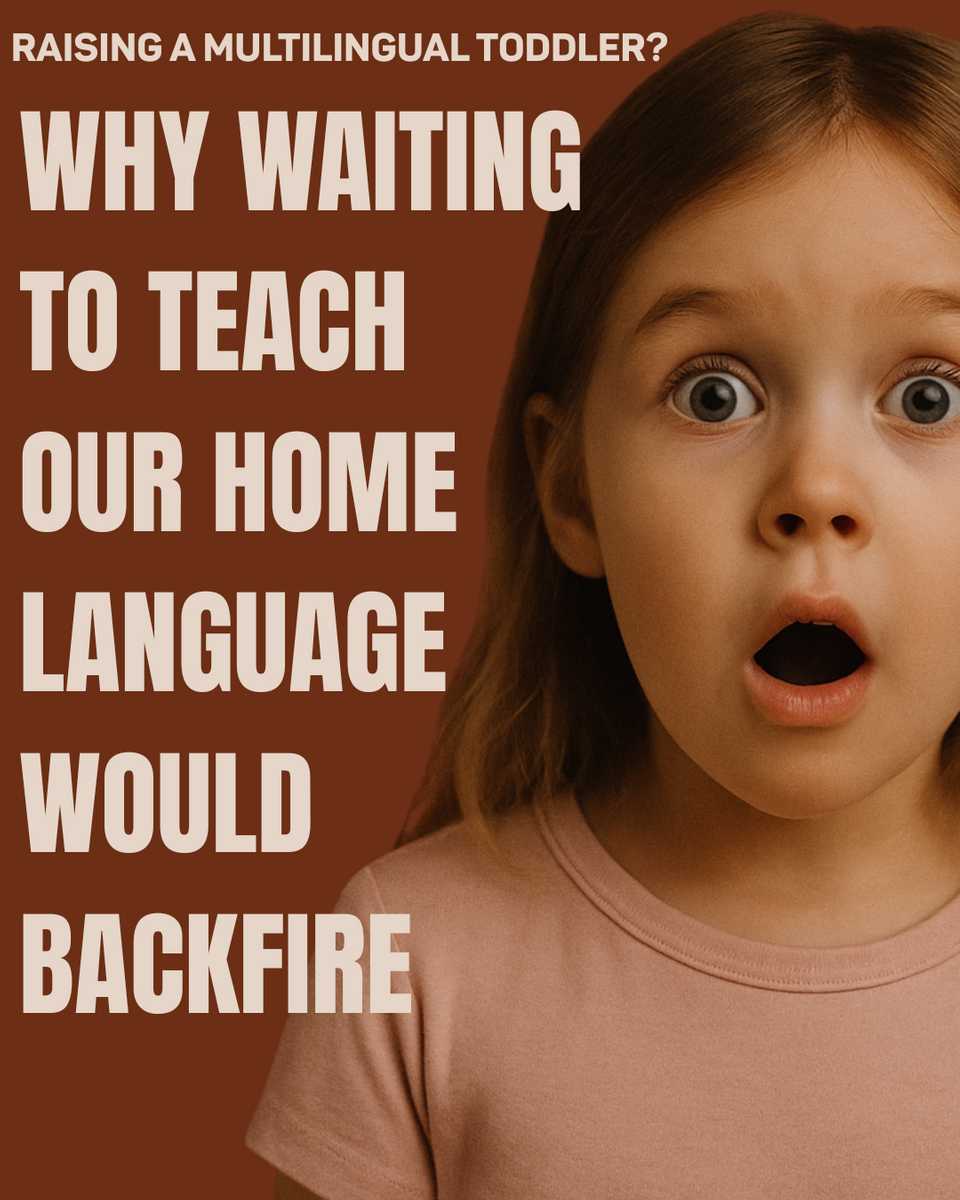Montessori Consultation
- Why early language learning matters
- Practical ways to boost your home language
- What not to do
- Why it’s all worth it
Have you ever paused and realized your toddler might not speak your home language fluently if you don’t take action now? The early years are crucial for language development, and if you’re raising your child abroad, you’ve got a golden opportunity—and a potential risk. Let’s break down what’s at stake and how to make sure your child grows up proud and fluent in your family’s language.
Why early language learning matters
Children are wired for language, especially from birth to age six. During this sensitive period, they can absorb multiple languages naturally, just by being around them. Delaying exposure might mean they lose the chance to speak your home language fluently later.
Besides better communication with extended family, early bilingualism supports:
- Stronger cognitive development
- Better problem-solving skills
- Higher empathy and cultural awareness
- More flexible thinking
Practical ways to boost your home language
You don’t need a formal curriculum—just consistency and intention. Try these easy, Montessori-inspired ideas:
- Immerse at home: Make your home a safe space for your language. Speak it often and make it the default in certain situations (e.g., mealtime, bedtime stories).
- Narrate your day: Describe what you’re doing out loud—in your home language.
- Sing and play: Use songs, games, and rhymes to bring joy into learning.
- Read daily: Storytime is magic. Read simple board books or picture books in your language.
- Create routines: Have fixed daily habits that revolve around your home language.
“A child can only acquire the words he hears spoken around him. This is not teaching but absorption. The child is, by nature, hungry for words; he loves strange, long words like the names of dinosaurs and constellations. He takes in all these words without understanding their meaning, as his mind is still taking language in by a process of unconscious absorption.”
— Maria Montessori The 1946 London Lectures, p. 146
What not to do
Here are a few common traps to avoid:
- Over-correcting: It’s tempting, but try not to interrupt. Model the correct language in your reply instead.
- Being inconsistent: Switching to the dominant language too often sends the message that your home language doesn’t matter.
- Making it a chore: Keep it light and fun. If it feels like schoolwork, kids will push back.
Bring the Language into Real Life
One of the best ways to boost your child’s exposure to your home language is by connecting it with real people and real places. Look around your local area—there might be cultural centers, weekend language schools, or community events that bring together families who share your language and traditions.
If you can, sign up for a class or activity where the only spoken language is your home one. It could be a toddler music group, a cooking workshop, or even a parents’ meetup. Being immersed in social settings where your language is spoken naturally helps your child associate it with more than just home—it becomes part of their world.
Why it’s all worth it
It might feel like extra effort now, especially when you’re juggling life abroad—but every small step pays off. You’re giving your child tools for life: connection, confidence, and cultural roots. And bonus? They’ll probably be more eager to speak—and eat—when they’ve helped prepare meals and stories in your home language.
You’ve got this. And it’s never too late to begin.
Join Our Montessori-Inspired Polish Playgroup
In our own community, we’ve started a Polish playgroup that follows Montessori principles—and it’s been a beautiful experience for both kids and parents. Everything is conducted entirely in Polish, from songs and storytelling to snack time and social play. Children learn through hands-on activities and real-life tasks, just like they would in a Montessori environment, but in a setting that reinforces their connection to Polish culture and language.
We’re planning to open language-based playgroups in more languages soon-so if you’re raising your child with a different home language, reach out too!
Want to join us or help start a group in your language? Reach out on Instagram: @practicalmontessori
